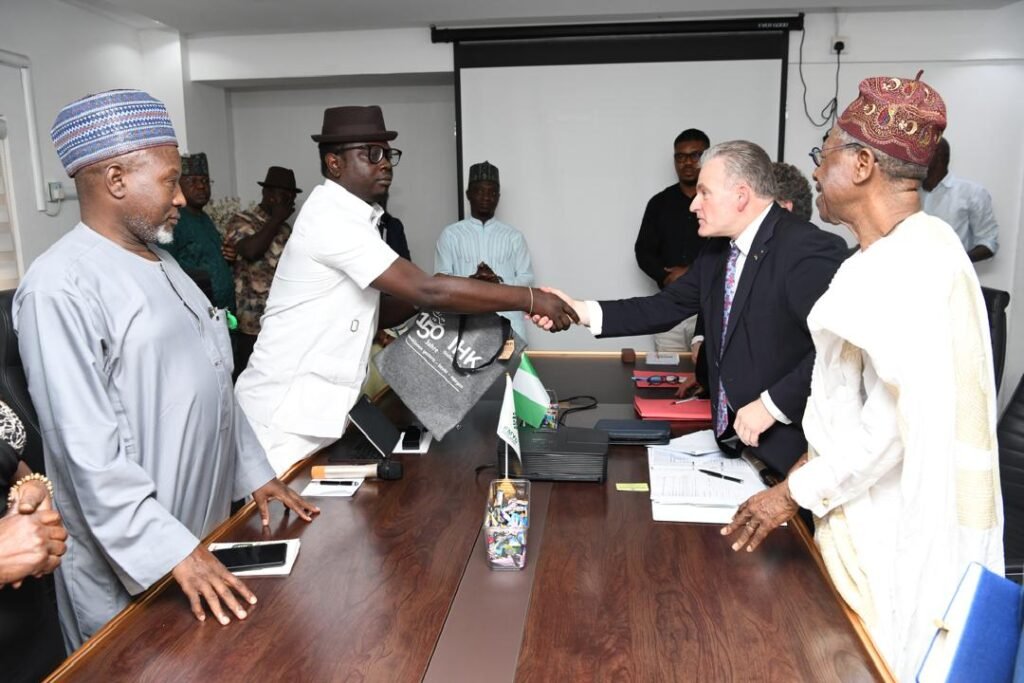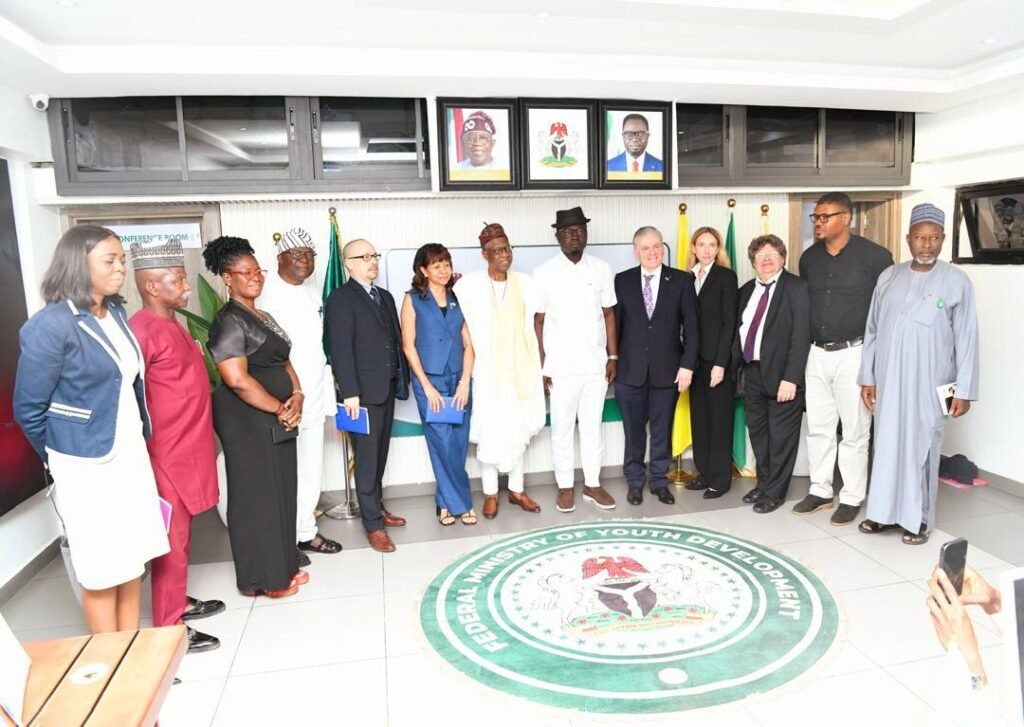The Federal Government has announced a landmark collaboration with the German Chamber of Commerce and Industry (IHK Giessen-Friedberg) to train and empower Nigerian youths with globally competitive skills. The partnership aims to address the country’s deepening unemployment crisis by focusing on practical, industry-driven vocational and digital training.
Unveiling the initiative, Nigeria’s Minister of Youth Development described it as part of a wider government agenda to transform the nation’s human capital. He emphasised that the time had come to move beyond paper qualifications and equip young people with hands-on expertise that aligns with both local and global market demands.
Germany’s dual vocational training system, which blends classroom instruction with on-the-job apprenticeships, will serve as the model for Nigeria’s rollout. The partnership is expected to bridge the gap between education and employment, ensuring that Nigerian youths gain both technical know-how and work experience before entering the labour market.
The German delegation, led by Dr. Matthias Leder of IHK Giessen-Friedberg, highlighted the mutual benefits of the collaboration. According to him, Germany views Nigeria as a key partner in Africa, not just for trade and investment, but also for nurturing a new generation of skilled professionals who can contribute to both countries’ economies.

Table of Contents
A partnership built on shared values and long-term vision
The new partnership builds on Germany’s longstanding involvement in Nigeria’s skills and vocational training sector. Over the years, several German-funded initiatives have supported technical colleges, small enterprises, and migration programmes that prepare Nigerians for safe, legal employment abroad.
Under this fresh agreement, the German Chamber will provide technical assistance, training infrastructure, and capacity-building for instructors across Nigeria. This includes upgrading vocational centres, providing modern learning tools, and helping standardise curricula in line with international benchmarks.
Nigeria’s Youth Development Ministry will coordinate the implementation, while state governments, private employers, and educational institutions are expected to provide local support. The collaboration also introduces a component on legal migration, offering structured pathways for Nigerian youths who meet the required skill and language standards to work in Germany under safe, regulated conditions.
Dr. Leder explained that the partnership had been in development for over two years, with both sides conducting several joint missions and feasibility studies. “This is not a one-off project. It is a sustainable framework that focuses on youth employability, business development, and technical innovation,” he said.

What it means for Nigerian youths
The initiative has set an ambitious target — training seven million young Nigerians in digital and vocational skills over the next few years. These programmes will focus on key growth sectors such as renewable energy, construction, agriculture, ICT, automotive mechanics, and creative industries.
According to the Ministry, the framework will run under a three-pillar approach: Support, Empowerment, and Protection. Beyond training, youths will gain access to mentorship, entrepreneurship opportunities, and internship placements that lead directly to employment.
A pilot group of 300 trainees has already been selected for a dual vocational training and legal migration project. They are undergoing language and technical preparation, including attaining the German A1 language certification, a prerequisite for cross-border employment.
One of the programme’s key goals is to help participants transition from being job-seekers to job creators. Graduates of the training will have the tools and confidence to launch small enterprises or work with established companies that demand specific technical skills.
The government also intends to leverage digital platforms to make training more accessible. Plans are underway to launch an Online Youth Academy, where participants across the country can access courses, mentorship sessions, and certification programmes remotely. This step aims to close the gap between rural and urban learners, ensuring inclusivity and nationwide reach.
Challenges ahead and the promise of transformation
Despite the enthusiasm surrounding this initiative, experts warn that execution will determine its success. Nigeria’s vocational education system has long struggled with outdated facilities, inconsistent funding, and weak industry linkages. The collaboration with Germany presents a unique opportunity to correct these flaws — but only if the government maintains transparency, efficiency, and accountability.
Dr. Joy Igwe, a human development researcher, noted that, “Nigeria doesn’t have a shortage of training programmes. What we’ve lacked is coordination and sustainability. The German model could finally bring structure to what has been a scattered approach.”
There are also logistical challenges. Implementing large-scale vocational training across 36 states and the FCT requires significant funding, reliable infrastructure, and strong monitoring mechanisms. Still, the government remains confident that private-sector participation and foreign partnerships will sustain the momentum.
Beyond technical gains, the project could have profound social implications. By equipping millions of youths with employable skills, Nigeria could significantly reduce poverty, curb irregular migration, and strengthen national productivity. For many young Nigerians, this collaboration could open doors that were once closed — a chance to build a career, either at home or abroad, under decent and dignified conditions.

In essence, this initiative represents more than a government programme; it is a statement of intent — a commitment to invest in the future of Nigeria’s youth.
As the Minister summed up, “Our young people are not liabilities; they are our most valuable asset. With the right skills, they can compete anywhere in the world.”
If this partnership delivers on its promise, it could redefine what youth empowerment means in Nigeria — shifting the focus from mere hope to tangible opportunity. For a generation eager to build and not just dream, the collaboration with Germany may well become a model of transformation for Africa’s most populous nation.
Join Our Social Media Channels:
WhatsApp: NaijaEyes
Facebook: NaijaEyes
Twitter: NaijaEyes
Instagram: NaijaEyes
TikTok: NaijaEyes




